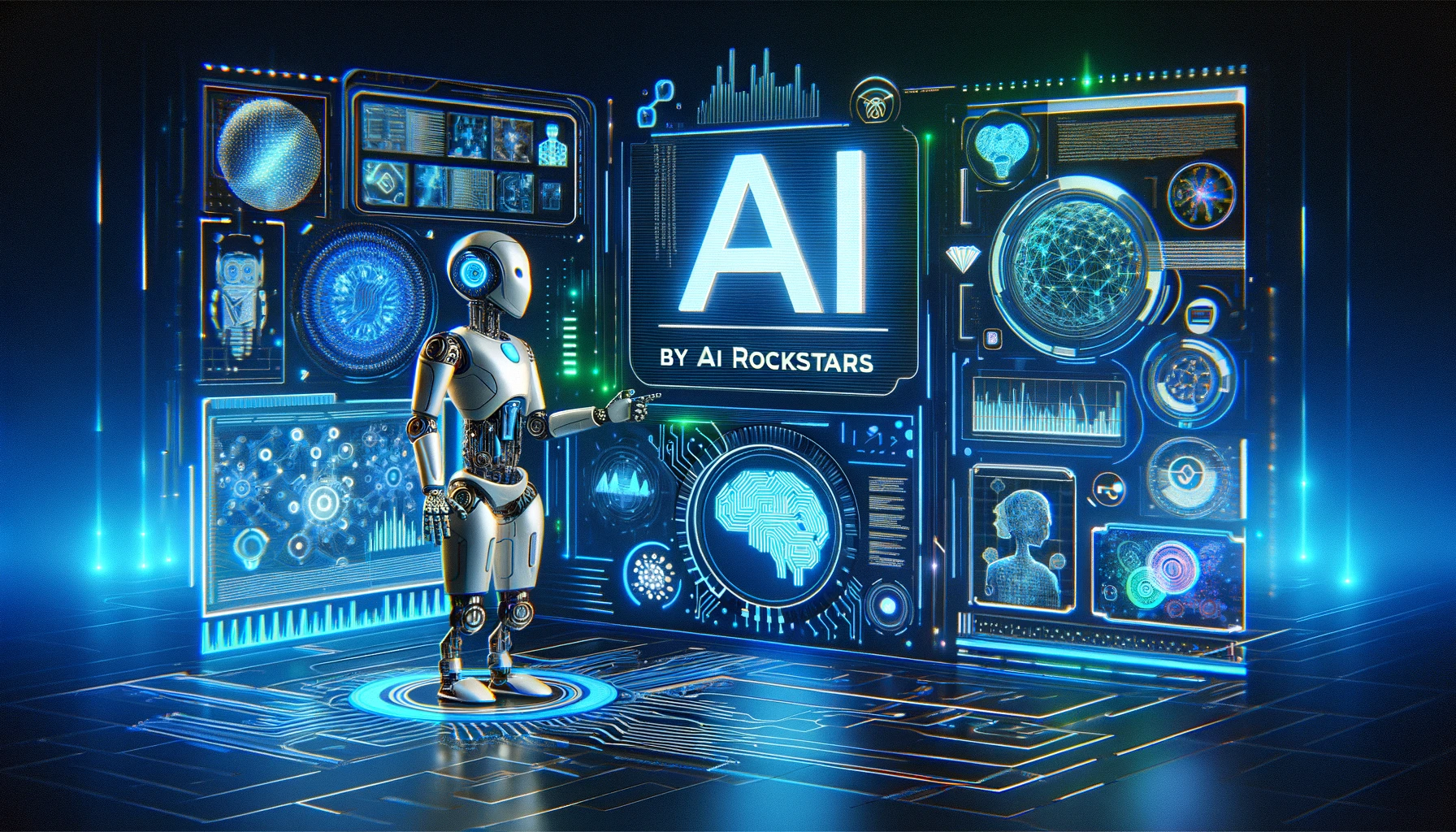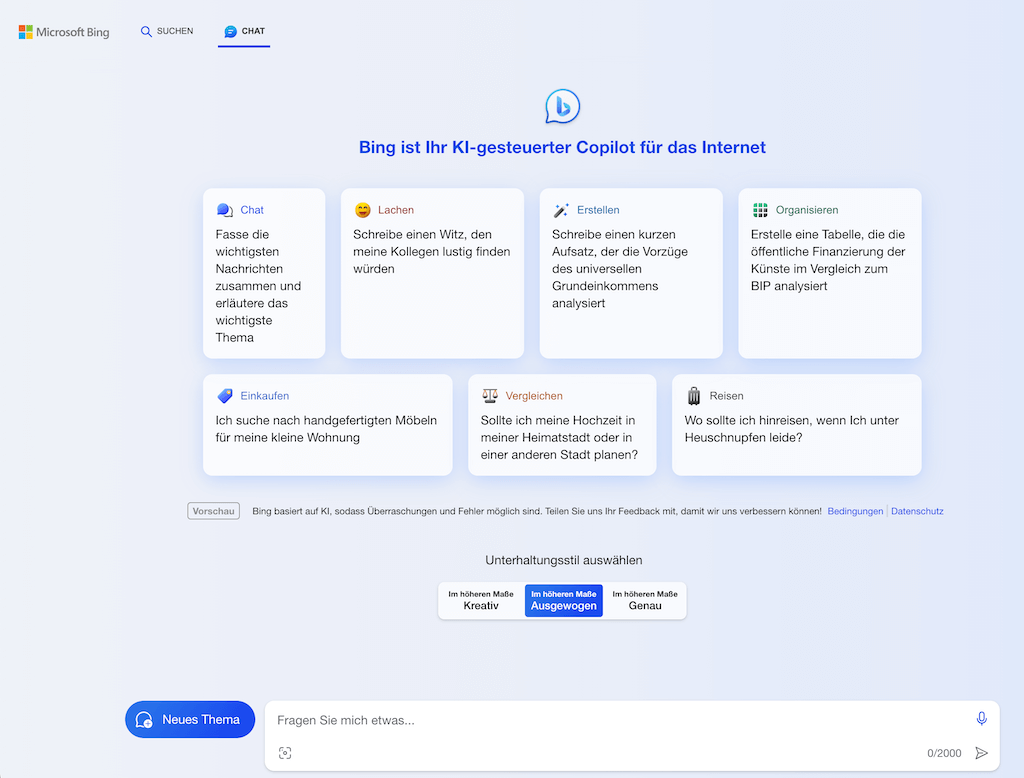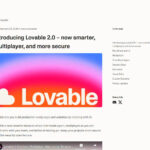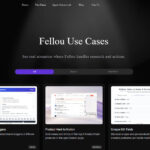Hardly a day goes by without new exciting news about AI. Here is the news from the last week: Google Maps AI update, Shopify can generate images, the Arc browser and Apple’s AI plans.
Arc Browser: A new era of AI-powered navigation
The Arc Browser introduces innovative AI-powered bookmarking and search features to enhance the browsing experience. These features are designed to make navigation easier and searches more efficient by providing smarter organization and personalized content discovery.
| Takeaways | The details |
|---|---|
| AI-based bookmarks | Enable smarter organization and faster access to saved content |
| AI-based search function | Improves search efficiency through personalized suggestions |
| Goal | Simplify navigation and optimize the browsing experience |
Link: https://www.appgefahren.de/arc-browser-neue-ki-basierte-lesezeichen-und-suchfunktion-352053.html
Amazon revolutionizes online shopping with chatbot Rufus
Amazon has introduced Rufus, a new shopping chatbot that simplifies the shopping process with intelligent recommendations and product comparisons. Rufus uses Amazon’s extensive product catalog and internet information to efficiently answer customer questions. The chatbot is available in a beta version for a selected group of customers and is being rolled out gradually in the USA.
| Key point | Details |
|---|---|
| Product | Shopping chatbot Rufus from Amazon |
| Function | Answers customer questions, gives recommendations, facilitates product search |
| Availability | Beta version in the Amazon mobile app, gradual rollout in the USA |
Link: https://the-decoder.de/amazon-stellt-shopping-chatbot-rufus-vor/
Neuralink’s breakthrough: First human brain implant
Elon Musk has confirmed that Neuralink has successfully implanted a brain-computer interface chip in a human, showing promising early results. This step could significantly improve communication skills for people with paralysis and is a major milestone in the vision of combining human thought and computer technology.
- Development: Successful implantation of a neuralink chip in a human.
- Results: Promising detection of neuron activity.
- Future vision: Improving communication skills through thought.
Link: https://www.scientificamerican.com/article/elon-musks-neuralink-has-implanted-its-first-chip-in-a-human-brain-whats-next/
Childlike learning: AI revolution through a toddler’s perspective

Researchers at New York University have developed an AI that learns language similar to a toddler by analyzing video footage from a child’s perspective. This method is intended to give the AI an intuitive understanding of language and the environment, far beyond the previous, data-hungry learning methods.
| Key point | Details |
|---|---|
| Research team | New York University |
| Method | Video recordings from a child’s perspective |
| AI model | “Child’s View for Contrastive Learning (CVCL) |
| Result | Successful learning of word-object mappings |
Link: https://the-decoder.de/forscher-wollen-ki-sprache-lernen-lassen-wie-ein-kleinkind/
From DeepMind to Startup: AI research on new paths

Ioannis Antonoglou, former AI researcher at Google DeepMind, has founded a new startup in the field of AI agents together with Sherjil Ozair and Misha Laskin. The aim of the startup is to compete directly with other companies such as Adept and Imbue by developing technologies that use conversational AI chatbots for complex tasks. This venture underscores the ongoing trend of high-profile departures from Google DeepMind, where researchers are investing in new AI ventures.
| Key point | Details |
|---|---|
| Founder | Ioannis Antonoglou, Sherjil Ozair, Misha Laskin |
| The company | New AI agent startup |
| Competition | Adept, Imbue |
| Technology | Conversational AI chatbots for complex tasks |
| Comparison | Google’s Bard chatbot |
| Background | High-profile departure at Google DeepMind |
| Similar startups | Character AI, Mistral, Sakana AI, Reka AI |
Link: https://the-decoder.de/ehemaliger-google-deepmind-ki-forscher-gruendet-startup-fuer-ki-agenten/
AI robot reads Braille twice as fast as humans
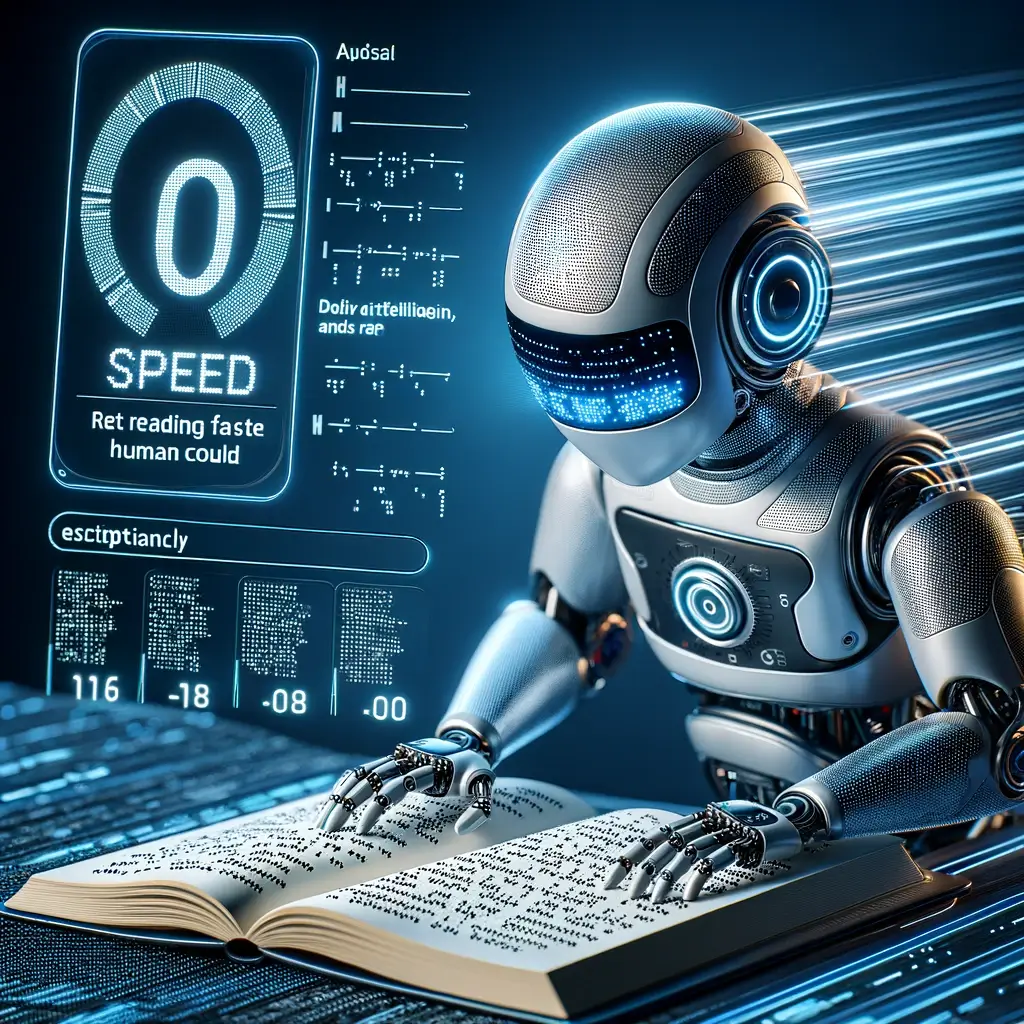
Researchers have developed an AI-powered robot that can read Braille at a speed of 315 words per minute with 87% accuracy, surpassing the average human reading speed. This breakthrough could drive the development of sensitive robotic hands and prosthetics, although it was not designed as an assistive technology.
| Key point | Details |
|---|---|
| The technology | AI and camera-equipped ‘fingertip’ sensor |
| Reading speed | Twice as fast as most human readers |
| Sensitivity | High sensitivity ideal for developing advanced robotic hands or prosthetics |
| Engineering challenge | Replication of human fingertip sensitivity in robotics |
| Field of application | Going beyond Braille reading |
Link: https://neurosciencenews.com/ai-robot-braille-25541/
Apple focuses on generative AI: Tim Cook announces groundbreaking software features for 2024
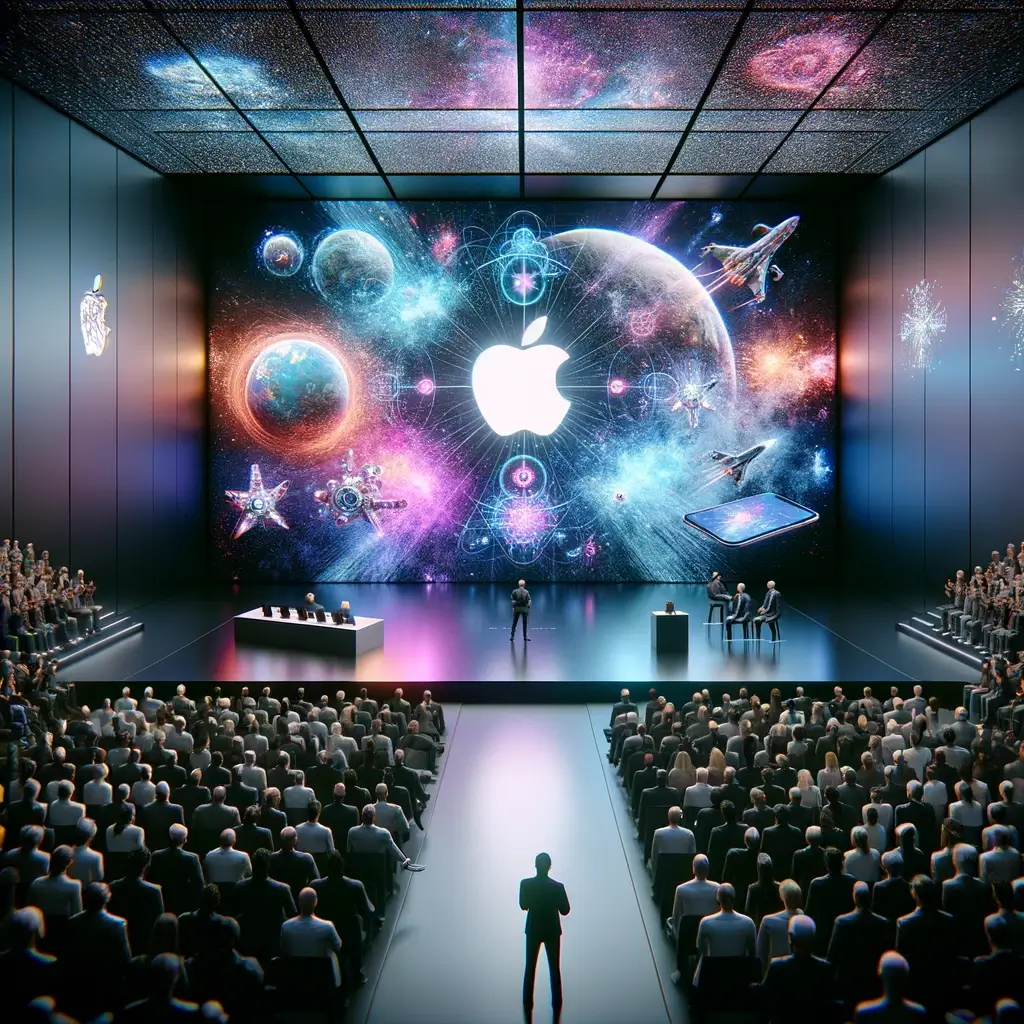
Tim Cook has confirmed that Apple will introduce new generative AI software features for its users later this year. This announcement was made during Apple’s quarterly report, but without providing specific details on the expected AI software upgrades. Cook’s vision includes the deep integration of AI into all Apple products, underscoring expectations for upcoming iPhone updates with significant AI enhancements.
| Key point | Details |
|---|---|
| Announcement from Tim Cook | Generative AI software features to be introduced later in the year |
| Investment | Apple continues to invest in AI and other forward-looking technologies |
| Details on AI upgrades | Specific details still pending, unveiling planned for 2024 |
| Comparison with competitors | Samsung and Google have already introduced AI features |
| Expected innovations | AI upgrades for the operating system, improved Siri version, AI in Apple Music and apps |
Link: https://ca.sports.yahoo.com/news/tim-cook-says-apple-ai-071435172.html
Security gap in ChatGPT: User data can be viewed unintentionally

A ChatGPT user discovered private conversations and passwords of other users in his history, raising questions about data security. OpenAI has announced an investigation into the incident, which highlights the need to protect sensitive information when using AI services.
| Key point | Details |
|---|---|
| Discovery | Private conversations and passwords in ChatGPT history |
| Affected data | Login data, personal information |
| Reaction from OpenAI | Investigation of the incident announced |
| Data protection concerns | Need to protect sensitive data |
Link: https://the-decoder.de/chatgpt-nutzer-entdeckt-fremde-private-gespraeche-und-passwoerter-in-seinem-verlauf/
Shopify introduces AI-powered image editor

Shopify has introduced a new Magic Media Editor that allows sellers to create background images for product photos using generative AI. This tool, part of the Winter Edition update, enables the production of images in seven preset styles or to custom specifications to match brand aesthetics. It also makes it easy to remove backgrounds with a click and suggests suitable backgrounds.
| Key point | Details |
|---|---|
| Tool | Magic Media Editor |
| Purpose | Synthesizing background images for product photos |
| AI functions | Generative AI for seven preset styles or user-defined backgrounds |
| Additional functions | Background removal, suggestions for suitable backgrounds, image enhancement up to 4K |
| Semantic search | Improved to understand intent and context |
| Product variants | Supports up to 2,000 combinations |
| Part of | Shopify Magic Suite with generative AI tools |
Link: https://voicebot.ai/2024/02/01/shopify-expands-generative-ai-features-with-synthetic-image-editor-for-product-backgrounds-and-more/
Google unveils Gemini Advanced: The next step in AI evolution
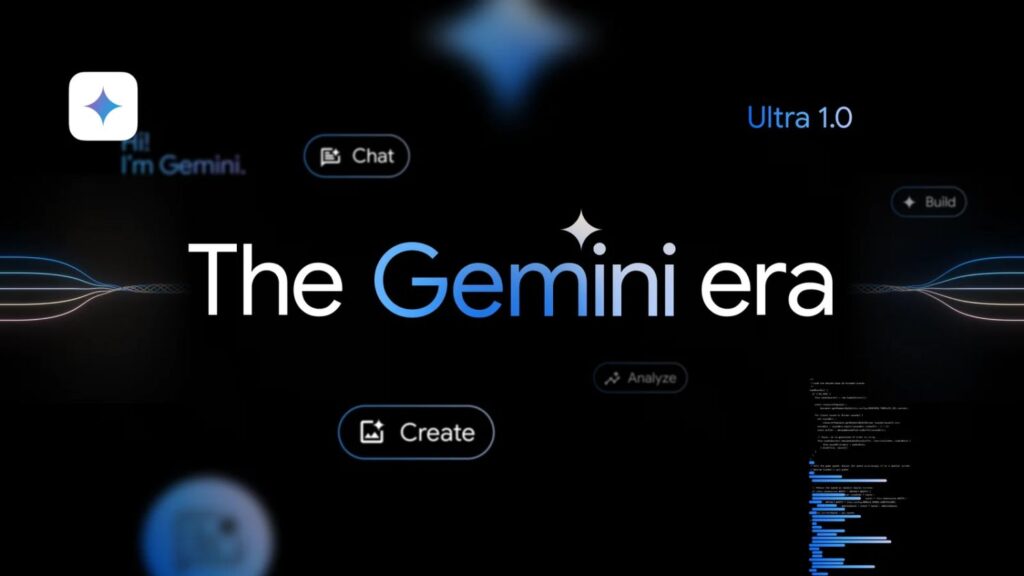
Google plans to release “Gemini Advanced” on February 7, an improved version of its chatbot based on the new Gemini Ultra 1.0 model. This advancement promises to be more effective at handling complex tasks such as coding and creative thinking. Gemini Advanced, likely to be a paid offering, aims to provide regular updates with improved features.
| Key point | Details |
|---|---|
| Product details | Gemini Advanced |
| Base | Gemini Ultra 1.0 Model |
| Release date | 7. February |
| Goal | Improvement for complex tasks |
| Functions | Regular updates and enhancements |
Link: https://the-decoder.de/gemini-advanced-googles-chatgpt-plus-konkurrent-steht-in-den-startloechern/
Google Maps gets AI upgrade for improved search
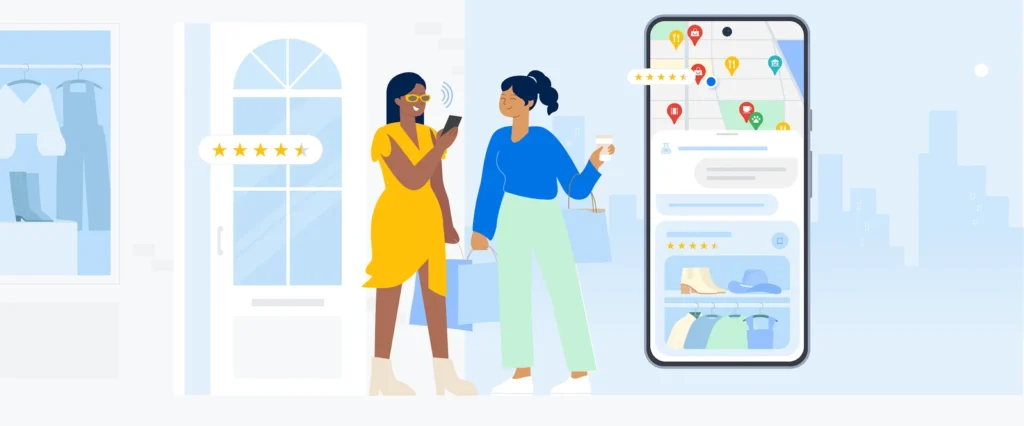
Google is integrating an AI-powered search function into Maps to provide users with personalized suggestions. This feature, based on extensive language models, analyzes information about locations and community insights. Users can make specific queries to receive recommendations that match their preferences. This innovation is a step towards a more comprehensive use of generative AI in Google Maps.
| Key point | Details |
|---|---|
| AI-powered search | Enables personalized suggestions based on user preferences |
| Analysis | Uses extensive language models to analyze location information |
| Application examples | Suggestions for “vintage stores in San Francisco” or suitable restaurants |
| Adaptation to travel plans | Can offer suggestions based on changes in itinerary |
| Generative AI | Experimental feature that is the beginning of a broader AI integration |
| Assumed technology | Probably based on the new Gemini series |
| Search Generative Experience | AI-generated answers to search queries, potential change in traffic |
Link: https://the-decoder.de/google-verpasst-google-maps-llm-upgrade-fuer-eine-bessere-ki-suche/
EU sets new standards with the AI Act

The EU member states have adopted the EU AI Act, a groundbreaking legal framework for the regulation of artificial intelligence. This act aims to promote innovation while minimizing risks. It establishes ethical and legal standards to guide the development and use of AI within the European Union.
| Key point | Details of |
|---|---|
| Vote | Unanimous approval by the ambassadors of the 27 EU member states |
| Rulebook | World’s first comprehensive set of rules for AI |
| Criterion | Regulation of AI based on harm potential |
| Reservations | France, Germany, Italy called for less stringent rules |
| Transparency | Transparency requirements for all AI models |
| High-risk models | Additional obligations |
| Adoption | Internal Market and Civil Liberties Committee on February 13; plenary vote on April 10 and 11 |
Link: https://the-decoder.de/eu-staaten-verabschieden-eu-ai-act-neuer-massstab-fuer-ki-regulierung/

